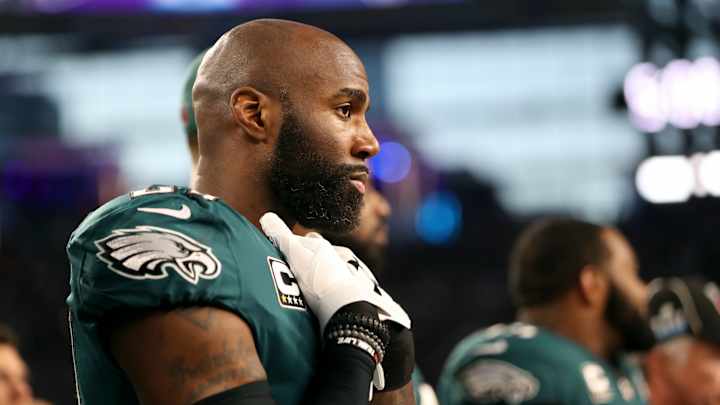Malcolm Jenkins, Players Coalition Members Address Trump's Pardon Request

Eagles safety Malcolm Jenkins, Seahawks wide receiver Doug Baldwin, Saints tight end Benjamin Watson and former NFL wideout Anquan Boldin responded to President Trump's request for pardon recommendations on Thursday.
In an opinion piece for The New York Times, the Players Coalition members addressed changes that need to be made within the justice system.
The players mentioned how Trump recently padoned Alice Johnson, 63, for who was serving a life sentence for a nonviolent drug crime. However, the players feel that pardons are not the only solution.
"A handful of pardons will not address the sort of systemic injustice that N.F.L. players have been protesting," they wrote. "These are problems that our government has created, many of which occur at the local level. If President Trump thinks he can end these injustices if we deliver him a few names, he hasn’t been listening to us."
Earlier in June, TrumpaskedNFL players to provide him with a list of names of people to be considered for pardons. He acknowledged that the reason behind NFL players' protests was to speak out for those treated unfailry in the justice system.
Last Friday, Trump said he had not heard any response from players yet.
Baldwin, Boldin, Jenkins and Watson went on to ask the president to consider releasing the elderly who commited nonviolent crimes and don't pose a serisous threat to society. They also asked Trump to look at the sentences for those serving time for nonviolent drug offenses.
"People like Alice Johnson, for example, should not be given de facto life sentences for nonviolent drug crimes in the first place. The president could stop that from happening by issuing a blanket pardon for people in that situation who have already served long sentences."
The Players Coalition members ended their piece with an explanation on why they feel so strongly about speaking out on these injustices.
"President Trump, please note: Our being professional athletes has nothing to do with our commitment to fighting injustice. We are citizens who embrace the values of empathy, integrity and justice, and we will fight for what we believe is right. We weren’t elected to do this. We do it because we love this country, our communities and the people in them. This is our America, our right.
"We intend to continue to challenge and encourage all Americans to remember why we are here in this world. We are here to treat one another with the kindness and respect every human being deserves. And we hope our elected officials will use their power to do the same."
NFL player protests during the national anthem started in August 2016 when former 49ers quarterback Colin Kaepernick refused to stand for the anthem as a means of protesting racial inequality and police brutality. Dozens of other NFL players ultimately joined him. The protests grew during the 2017 season after Trump criticized NFL players who chose to follow suit.
